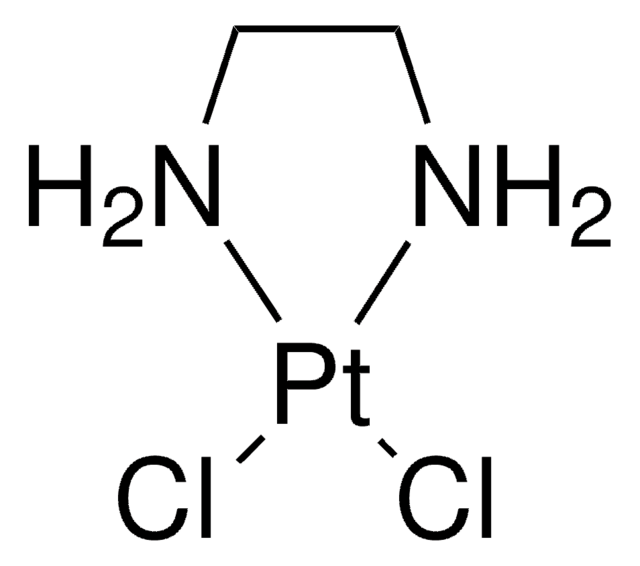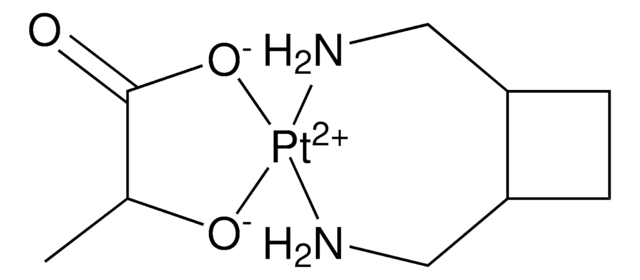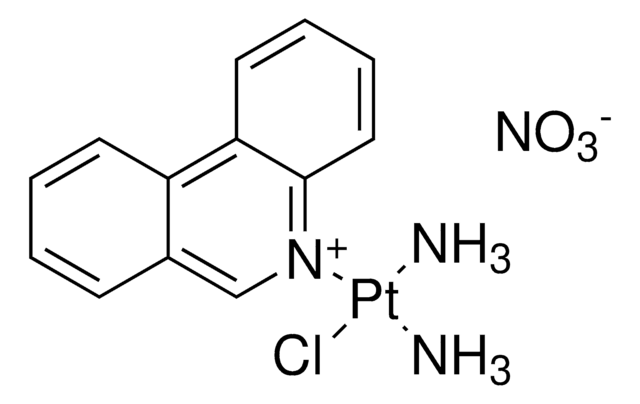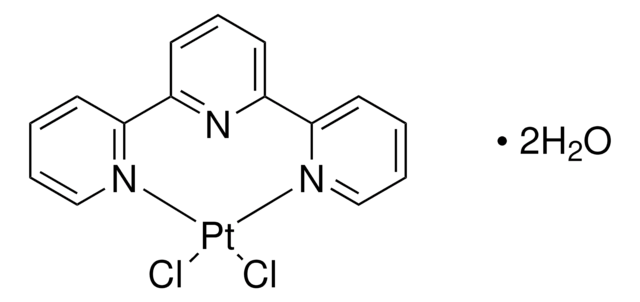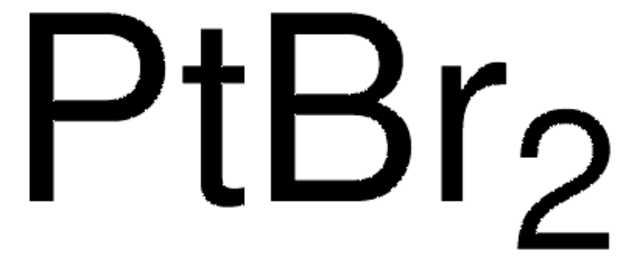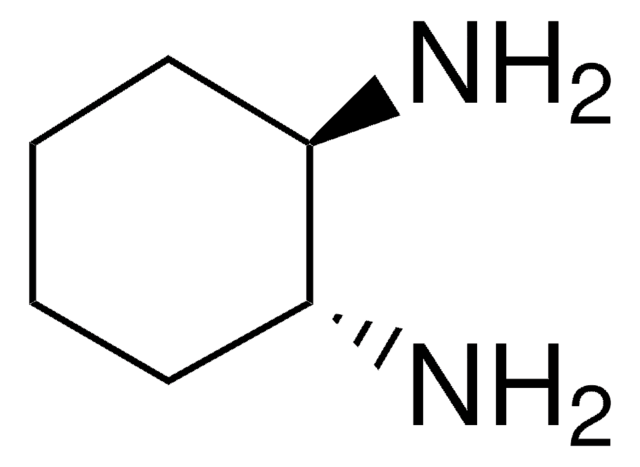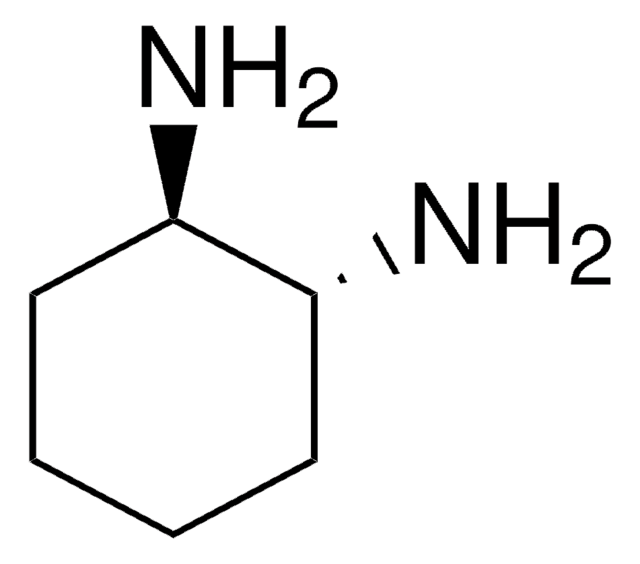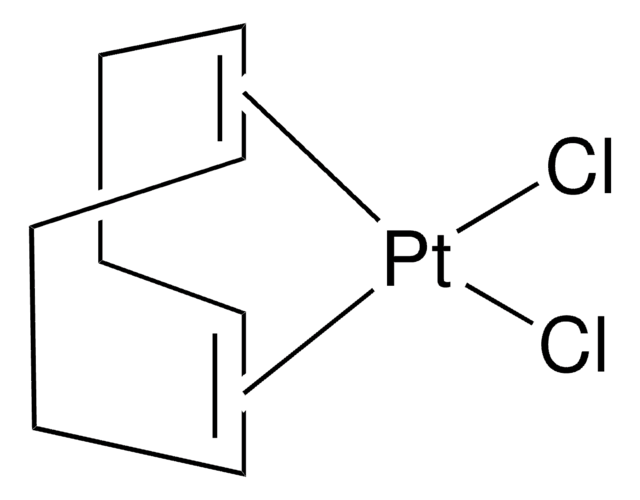404322
Dichloro(1,2-diaminocyclohexane)platinum(II)
Synonym(s):
(1,2-Diaminocyclohexane)platinum(II) chloride
About This Item
Recommended Products
Quality Level
reaction suitability
core: platinum
reagent type: catalyst
mp
280 °C (dec.) (lit.)
SMILES string
Cl[Pt]Cl.NC1CCCCC1N
InChI
1S/C6H14N2.2ClH.Pt/c7-5-3-1-2-4-6(5)8;;;/h5-6H,1-4,7-8H2;2*1H;/q;;;+2/p-2
InChI key
PNNCIXRVXCLADM-UHFFFAOYSA-L
Signal Word
Danger
Hazard Statements
Precautionary Statements
Hazard Classifications
Carc. 2 - Eye Dam. 1 - Lact. - Muta. 2 - Repr. 1B - Resp. Sens. 1B - Skin Sens. 1 - STOT RE 1
Storage Class Code
6.1C - Combustible acute toxic Cat.3 / toxic compounds or compounds which causing chronic effects
WGK
WGK 3
Flash Point(F)
Not applicable
Flash Point(C)
Not applicable
Personal Protective Equipment
Choose from one of the most recent versions:
Already Own This Product?
Find documentation for the products that you have recently purchased in the Document Library.
Customers Also Viewed
Our team of scientists has experience in all areas of research including Life Science, Material Science, Chemical Synthesis, Chromatography, Analytical and many others.
Contact Technical Service